Global Data from IBM Points to AI Growth as Businesses Strive for Resilience
IBM's recent survey reveals that nearly one-third of IT professionals globally report their businesses utilize artificial intelligence (AI), with 43% accelerating AI adoption due to COVID-19. Despite the growth, challenges remain, such as lack of AI skills, increasing data complexity, and inadequate tools. The Global AI Adoption Index 2021 indicates that while AI adoption remains flat, significant investments are anticipated. Key findings highlight the importance of trustworthy AI and the integration of natural language processing to improve customer experience. IBM's initiatives focus on bridging skills gaps and enhancing AI capabilities.
- 43% of companies accelerated AI adoption due to COVID-19.
- Significant investments in AI are planned, with a third of IT professionals anticipating spending on skills and solutions.
- 91% of businesses using AI prioritize explainability in AI outcomes.
- AI adoption growth has been nearly flat over the last year.
- 39% of businesses cite limited AI expertise as a major barrier to adoption.
- 32% report increasing data complexity and silos as challenges.
Insights
Analyzing...
NEW YORK, May 12, 2021 /PRNewswire/ -- New market research commissioned by IBM (NYSE: IBM) found that almost one-third of IT professionals surveyed globally say their business is now using artificial intelligence (AI), with 43 percent reporting that their company has accelerated their rollout of AI as a result of the COVID-19 pandemic. While recent advances in the technology are making AI more accessible than ever, the annual survey also found that a lack of AI skills and increasing data complexity are cited as top challenges.
Experience the interactive Multichannel News Release here: https://www.multivu.com/players/English/8668657-ibm-global-data-ai-growth/
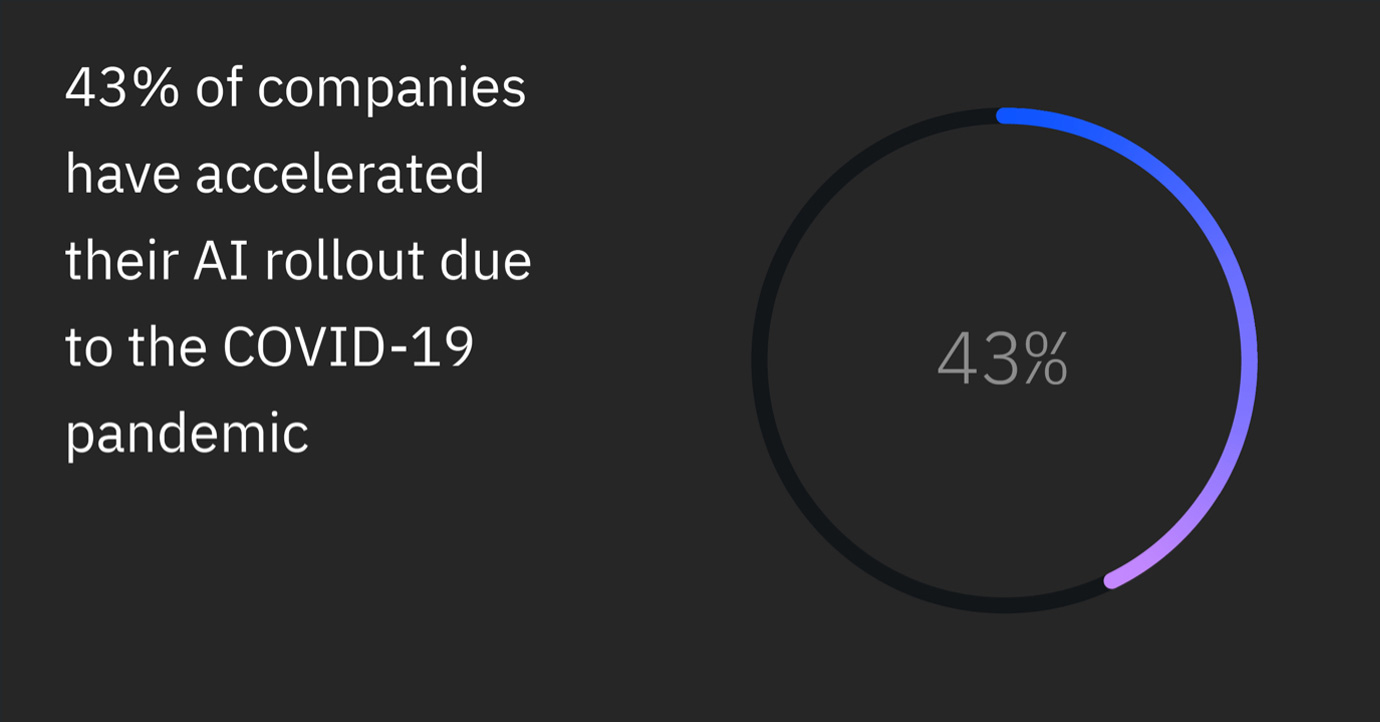
The "Global AI Adoption Index 2021," conducted by Morning Consult on behalf of IBM, revealed that while AI adoption was nearly flat over the last year, momentum is shifting as the need for AI has been accelerated by changing business needs due to the global pandemic. AI is already changing the way businesses operate today, from how they communicate with their customers via virtual assistants, to automating key workflows, and even managing network security. The "2021 CEO Study" from IBM's Institute for Business Value recently revealed that more than half of CEOs surveyed expect AI to deliver tangible business benefits in the next few years.
Highlights from the "Global AI Adoption Index 2021" include:
- Business adoption of AI was basically flat, but significant investments in AI are planned: Almost one-third of companies reported using AI in their business, similar to 2020 findings. For those deploying or exploring AI, they report it is being driven by multiple pressures and opportunities businesses are facing, from the COVID-19 pandemic to advances in the technology that make it more accessible. A third of global IT professionals report their company plans to invest in both skills and AI solutions over the next 12 months.
- COVID-19 accelerated how businesses are using automation today: 80 percent of companies are already using automation software or plan to use this technology in the next 12 months, and for more than one-in-three organizations, the pandemic influenced their decision to use automation to bolster the productivity of employees, while others found new applications of this technology to make themselves more resilient, such as helping to automate the resolution of IT incidents.
- Trustworthy and explainable AI is critical to business: 91 percent of businesses using AI say their ability to explain how it arrived at a decision is critical. While global businesses are now acutely aware of the importance of having trustworthy AI, more than half of companies cite significant barriers in getting there including lack of skills, inflexible governance tools, biased data and more.
- The ability to access data anywhere is key for increasing AI adoption: The proliferation of data across the enterprise has resulted in over two thirds of global IT professionals drawing from more than 20 different data sources to inform their AI. Almost 90 percent of IT pros say being able to run their AI projects wherever the data resides is key to the technology's adoption.
- Natural language processing is at the forefront of recent adoption: Almost half of businesses today are now using applications powered by natural language processing (NLP), and one-in-four businesses plan to begin using NLP technology over the next 12 months. Customer service is the top NLP use case with 52 percent of global IT professionals reporting that their company is using or considering using NLP solutions to improve customer experience and it was the use AI case IT professionals were most likely to report that the COVID-19 pandemic has increased their focus on.
"As organizations move to a post-pandemic world, data from the Global AI Adoption Index 2021 underscores a major uptick in AI investment," said Rob Thomas, Senior Vice President, IBM Cloud and Data Platform. "A large majority of those investments continue to be focused on the three key capabilities that define AI for business - automating IT and processes, building trust in AI outcomes, and understanding the language of business. We believe these investments will continue to accelerate rapidly as customers look for new, innovative ways to drive their digital transformations by taking advantage of hybrid cloud and AI."
While adoption is poised for growth, some global businesses are still facing a multitude of challenges when it comes to adopting AI. Persistent barriers across markets and industries highlight the need for continued focus on addressing skills and solutions gaps.
- The survey determined top three barriers to AI adoption for businesses are: Limited AI expertise or knowledge (39 percent), increasing data complexity and data silos (32 percent), and lack of tools/platforms for developing AI models (28 percent).
IBM is working to accelerate adoption by delivering AI designed for the needs of businesses. To give businesses, data scientists and developers the capabilities they need to scale AI, IBM is continually bringing new innovations to IBM Watson from IBM Research that help enable organizations to better understand the language of business, automate processes and IT, and drive trust in their AI outcomes. Additionally, IBM Global Business Services brings deep technology, industry and process design expertise to co-create solutions with customers that embed AI into core business processes and create intelligent workflows at scale.
Download the full report here.
Methodology
The data sheds new light on the deployment of AI across 5,501 businesses in China (500), France (500), Germany (500), India (500), Italy (500), Latin America (1,000 across Brazil, Mexico, Colombia, Argentina, Chile, Peru), Singapore (500), Spain (500), the United Kingdom (500), and United States (501). The polling was conducted online through Morning Consult's proprietary network of online providers in April 2021. All respondents were required to have significant insight or input into their firm's IT decision-making. See full details on the methodology at the end of the summary.
About IBM Watson
Watson is IBM's AI technology for business, helping organizations to better predict and shape future outcomes, automate complex processes, and optimize employees' time. Watson has evolved from an IBM Research project, to experimentation, to a scaled, open set of products that run anywhere. With more than 40,000 client engagements, Watson is being applied by leading global brands across a variety of industries to transform how people work. To learn more, visit: https://www.ibm.com/watson
Media Contact:
Zachery Bishop
IBM Media Relations
Zachery.bishop@ibm.com
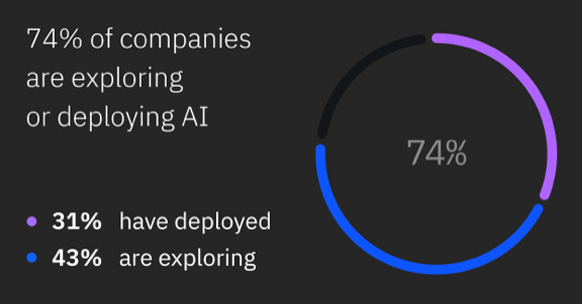

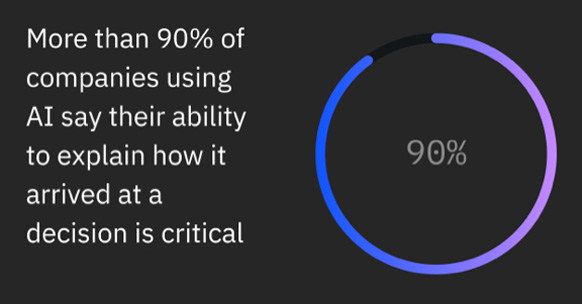
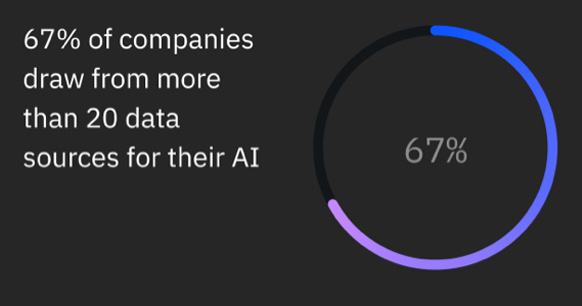

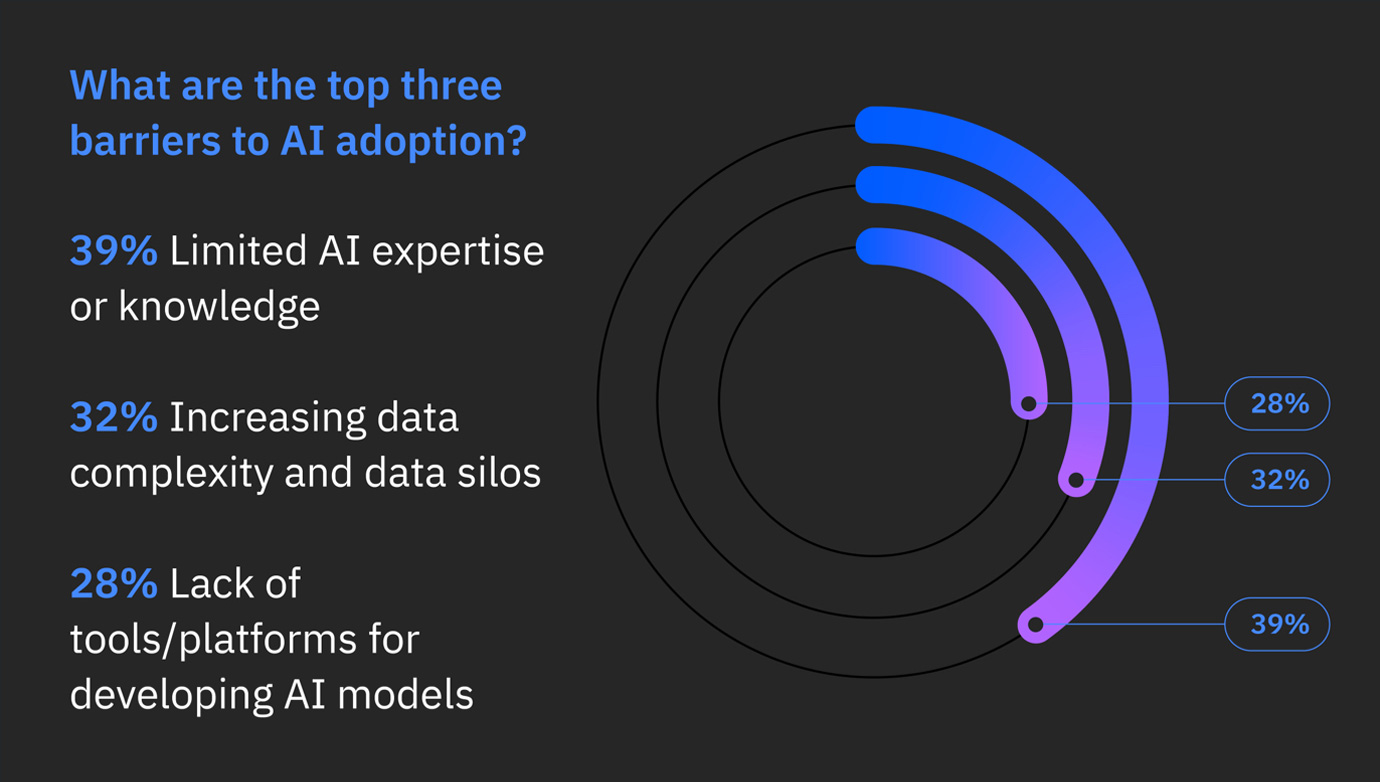
![]() View original content:http://www.prnewswire.com/news-releases/global-data-from-ibm-points-to-ai-growth-as-businesses-strive-for-resilience-301289320.html
View original content:http://www.prnewswire.com/news-releases/global-data-from-ibm-points-to-ai-growth-as-businesses-strive-for-resilience-301289320.html
SOURCE IBM







